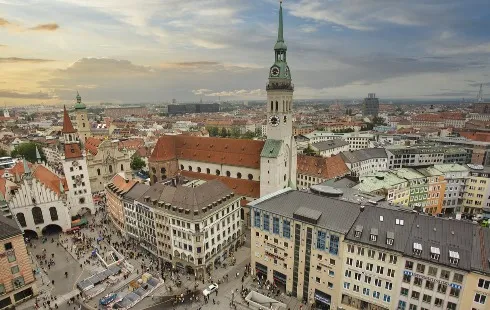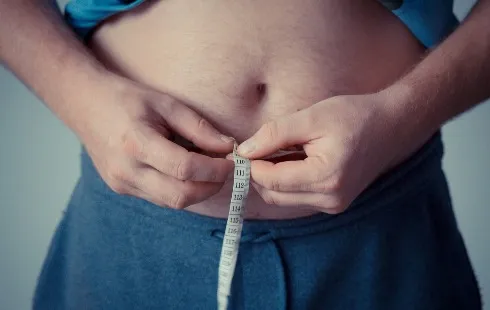
Gonadorelin Peptide: A Gateway to Understanding Endocrine Dynamics
Section: Science
 Resentment is growing among Germany's pensioners. For weeks and months, prices, especially for energy and food, have been rising at an alarming rate, fueled by the war in Ukraine. But SPD Chancellor Olaf Scholz, as Germany's largest tabloid recently castigated, has launched billion-dollar relief packages for working people, parents and children, but simply "forgotten" about pensioners. Many of the 21 million retirees felt "bullied" by the federal government.
Resentment is growing among Germany's pensioners. For weeks and months, prices, especially for energy and food, have been rising at an alarming rate, fueled by the war in Ukraine. But SPD Chancellor Olaf Scholz, as Germany's largest tabloid recently castigated, has launched billion-dollar relief packages for working people, parents and children, but simply "forgotten" about pensioners. Many of the 21 million retirees felt "bullied" by the federal government.
The truth is that the rising cost of living has not stopped at retirees, who now have to spend significantly more money on food, heating and fuel. And who had believed, the comparatively luxuriant pension increases to 1 July - of plus 5,35 per cent in west Germany and plus 6,12 per cent in the east - were sufficient in each case to soften the rapid rise in prices, must only calculate itself: According to the latest figures from the German Pension Insurance Fund, male retirees in western Germany received an average of 1179 euros in old-age and reduced earning capacity pensions; in the east of the republic, the figure was 1249 euros. In arithmetical terms, this means a monthly increase of 63 euros and about 76 euros, respectively, as of July 1. And many retirees, especially women, actually receive significantly less. So there is no doubt that the rising cost of living is causing financial hardship for many pensioners. There is indeed a need for the state to take action here. But the help must be targeted precisely.
Because on the other hand, this is also true: By no means every pensioner lives on the poverty line. There are many who receive company or private pensions in addition to their statutory pension, and quite a few also own real estate and earn rental income. For this group, inflation may be a nuisance. But there are by no means 21 million pensioners who are so needy that they would all have to be supported by the state because of the sharp rise in the cost of living. Highlighting this difference is important.
The Macroeconomic Policy Institute (MAK) has just published a clear study on the extent to which the federal government's relief packages need to be improved. The researchers' verdict with regard to pensioners - insofar as they receive only small pensions - is as follows: There is hardly any relief. As an example, the researchers cite a person living alone with an income of less than 900 euros. According to the findings, only nine percent of their additional financial burden is absorbed by the state. This actually reveals a gap in the government's relief package.
In the meantime, SPD Social Minister Heil has also acknowledged the problem. Over the weekend, he announced further steps to ease the burden "should the price level remain permanently high," which he expects to happen. The government wants to focus particularly on people with low incomes, such as students, trainees, families and also pensioners. Heil also said something that is also important: "We cannot equalize everything for everyone," which is why the government will not work with a watering can. So it will be interesting to see how the government tailors the aid for needy pensioners.
Trickery has long been circulating on the Internet as to how retirees can also enjoy the energy allowance of 300 euros, which actually only employees should receive together with their wages in the fall. The originator is, of all people, a CDU financial expert in the Bundestag: in order to receive the 300 euros, she advises, senior citizens would simply have to go back to work - as marginally employed persons. To do this, it would be enough for someone to look after their grandchildren for an hour "once in 2022" and in return collect twelve euros minimum wage from their own children as part of a mini-job. Those who then declare this on time in their tax return will receive the 300 euros in mid-2023.
Obviously, the federal government has not been particularly precise in its work.
Image by Gerd Altmann

Section: Science

Section: Health

Section: Arts

Section: Health

Section: Science

Section: News

Section: News

Section: Health Insurance

Section: Health

Section: News
Health Insurance in Germany is compulsory and sometimes complicated, not to mention expensive. As an expat, you are required to navigate this landscape within weeks of arriving, so check our FAQ on PKV. For our guide on resources and access to agents who can give you a competitive quote, try our PKV Cost comparison tool.
Germany is famous for its medical expertise and extensive number of hospitals and clinics. See this comprehensive directory of hospitals and clinics across the country, complete with links to their websites, addresses, contact info, and specializations/services.
The granddaughter of Claire Zachanassian makes a return to Güllen, the impoverished hometown of her late grandmother, for a performance. Having never fully engaged with her grandmother's past, she is eager to finally discover Güllen. The sound of her last name stirs the entire town into action.



No comments yet. Be the first to comment!